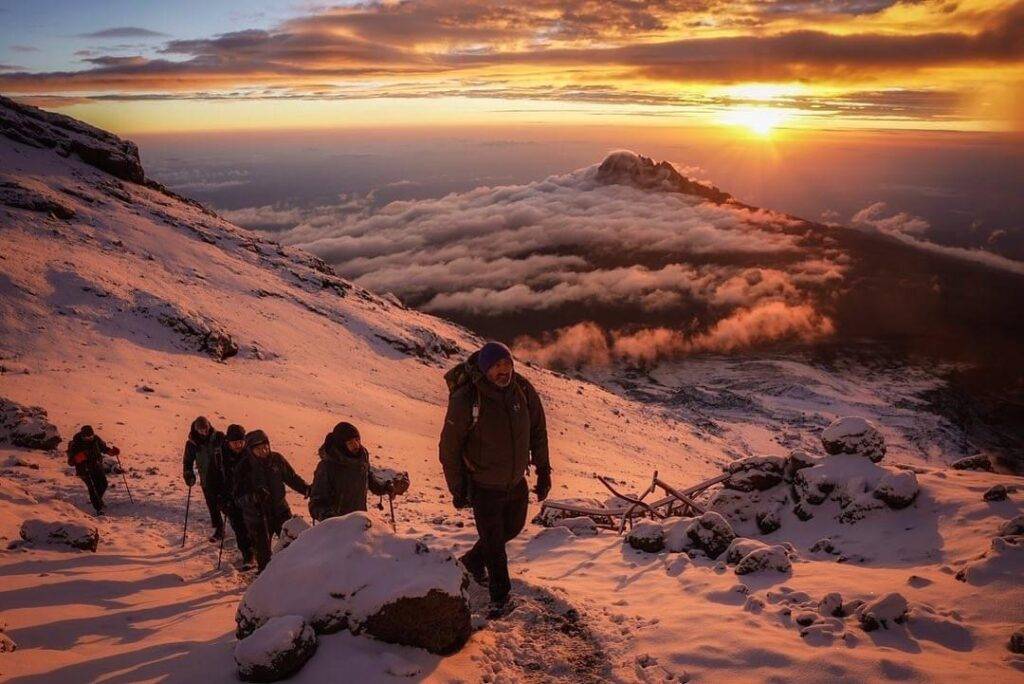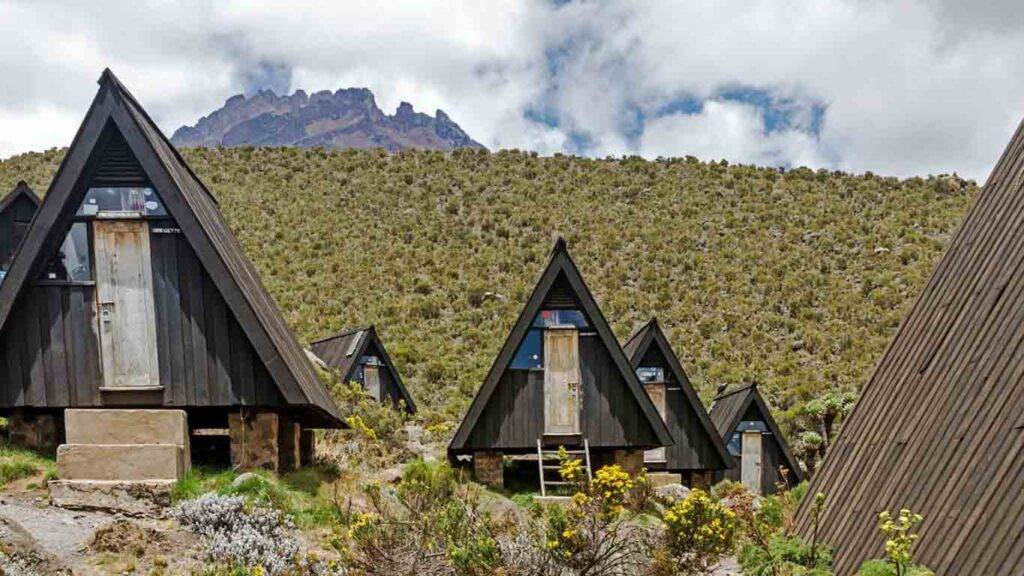Marangu Route Kilimanjaro: The Ultimate Guide to the “Coca-Cola Route”
The Marangu Route is one of the most popular and iconic paths to the summit of Mount Kilimanjaro, Africa’s highest peak. Known as the “Coca-Cola Route”, it is famous for its hut accommodations, gradual slopes, and straightforward trail. Whether you’re a beginner or an experienced trekker, this guide covers everything you need to know about the Marangu Route, including itineraries, success rates, huts, costs, and comparisons with other routes like the Lemosho Route.
For more comprehensive resources on climbing Kilimanjaro, visit the Mount Kilimanjaro Guide.
Why Choose the Marangu Route?
The Marangu Route is often considered the easiest route to climb Mount Kilimanjaro due to its gradual incline and hut accommodations. However, don’t let its reputation fool you—it still requires physical fitness and proper acclimatization. Here’s why trekkers choose this route:
- Hut Accommodations: Sleep in dormitory-style huts instead of camping.
- Gradual Slopes: No technical climbing required.
- Direct Path: A straightforward trail to the summit.
- Affordable: One of the most cost-effective routes.
Marangu Route Itinerary: 5 Days vs. 6 Days
The Marangu Route offers two main itineraries: 5 days and 6 days. The 6-day option is highly recommended for better acclimatization and a higher success rate.
5-Day Marangu Route Itinerary
- Duration: 5 days.
- Success Rate: ~30%.
- Difficulty: High due to limited acclimatization time.
- Overview: This shorter option is challenging and best suited for experienced hikers.
6-Day Marangu Route Itinerary
- Duration: 6 days.
- Success Rate: ~50%.
- Difficulty: Moderate, with an extra acclimatization day.
- Overview: The 6-day Marangu Route is ideal for beginners and offers a better chance of reaching the summit.
Marangu Route Map and Key Highlights
The Marangu Route covers 72 kilometers (45 miles) and passes through diverse ecological zones, including:
- Rainforest Zone: Lush greenery and wildlife sightings.
- Moorland Zone: Stunning views of Kilimanjaro’s peaks.
- Alpine Desert Zone: Barren and rocky terrain.
- Arctic Zone: Glaciers and the summit.
Explore the “Marangu Kilimanjaro Route” to experience these varied landscapes firsthand.

Marangu Route Huts: Accommodation on the Trail
One of the unique features of the Marangu Route is its hut accommodations. Here’s what to expect:
- Mandara Hut (2,700m / 8,858ft):
- Capacity: 60 bunk beds.
- Facilities: Flushing toilets, communal dining area.
- Horombo Hut (3,720m / 12,205ft):
- Capacity: 120 bunk beds.
- Facilities: Flushing toilets (lower section), long-drop toilets (higher section).
- Kibo Hut (4,700m / 15,420ft):
- Capacity: 60 bunk beds.
- Facilities: Long-drop toilets, limited water availability.
These huts make the “Marangu Route Kilimanjaro” a more comfortable option compared to tent-based routes.

Marangu Route Success Rate
The Marangu Route has a lower success rate compared to other routes like the Lemosho Route. Here’s why:
- 5-Day Itinerary: ~30% success rate due to poor acclimatization.
- 6-Day Itinerary: ~50% success rate with an extra acclimatization day.
Marangu Route vs. Lemosho Route: Which is Better?
| Feature | Marangu Route | Lemosho Route |
|---|---|---|
| Duration | 5-6 days | 7-8 days |
| Accommodation | Huts | Camping |
| Scenery | Limited (same path for ascent/descent) | Diverse (stunning views from the west) |
| Difficulty | Easier (gradual slopes) | Moderate (longer, varied terrain) |
| Success Rate | Lower (~50% for 6-day) | Higher (~90% for 8-day) |
| Crowds | Busier | Less crowded |
If you’re debating between “Marangu Kilimanjaro” and other paths, this comparison can help.

Marangu Route Elevation and Distance
- Total Distance: 72 kilometers (45 miles).
- Elevation Gain: From 1,860m (6,102ft) at Marangu Gate to 5,895m (19,341ft) at Uhuru Peak.
Key Elevation Points:
- Mandara Hut: 2,700m (8,858ft).
- Horombo Hut: 3,720m (12,205ft).
- Kibo Hut: 4,700m (15,420ft).
How Hard is the Marangu Route?
The Marangu Route is considered the easiest route to Mount Kilimanjaro, but it still presents challenges:
- Altitude Sickness: Rapid ascent increases the risk.
- Summit Night: A steep, grueling climb to the summit.
- Physical Fitness: Good endurance and stamina are required.
For queries like “how long is the Marangu Route,” it’s 72 km, but the real challenge is the elevation.
Best Time to Climb the Marangu Route
The best times to climb the Marangu Route are during the dry seasons:
- June to October: Stable weather, clear skies, and less rain.
- December to February: Another dry season with good climbing conditions.
Avoid the rainy seasons (April to May and November) due to muddy trails and slippery conditions.
Marangu Route Packing List
Here’s what to pack for the Marangu Route:
- Clothing: Thermal layers, warm jacket, gloves, beanie.
- Footwear: Waterproof hiking boots.
- Equipment: Sleeping bag, headlamp, trekking poles, sunglasses, sunscreen.
- Other Essentials: Water purification system, first aid kit, toiletries.

Marangu Route Cost Breakdown
Climbing the Marangu Route involves several costs, including:
- Tour Package: $1,800–$3,000 (includes park fees, huts, meals, guides, and transfers).
- Flights: ~$800 (round trip to Kilimanjaro International Airport).
- Gear: $200–$300 (sleeping bag, hiking boots, warm clothing).
- Tips: $200–$300 (for guides and porters).
- Miscellaneous: ~$200 (meals, souvenirs, etc.).
Total Estimated Cost: $3,200–$5,100 per person.
Have a question about Kilimanjaro Trekking? Write your queries or Book Now. Here we are ready to take you to the roof of Africa with this Mt. Kilimanjaro Trekking.
You can also follow us to climb Mount Meru to optimize your acclimatization. If you prefer to climb Kilimanjaro by another route, we also offer the Rongai, Lemosho, and Machame routes. And to round off your stay in Tanzania, you can follow me for one or more Serengeti Wildebeest Migration Safaris we offer on my profile page. For more information, see this special report on climbing Mount Kilimanjaro.
